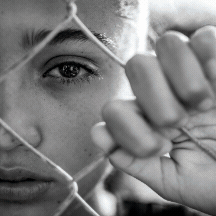
July 23, 2024
Friends of Givat Haviva June Newsletter: Empowering Educators in Crisis
A Message from CEO Michal Sella
Dear friends,
The most challenging and difficult school year we have ever known has come to an end. The students of the International School have left for summer vacation. We are proud that even in a year full of uncertainty, pain, and apprehension, the students completed their studies, even showing impressive achievements in the IB program final exams. The fact that the integrated school community was able to continue living and learning together after October 7 and throughout the war in Gaza showed us all that there is hope and potential for shared life in Israel. Despite conflict and challenges, we have the ability to understand and accept each other.
This past school year left its mark on all Israeli students. The anxiety, fear, and violence washing over the country from both outside and inside, harm our youth. When there is no systemic response to education in the shadow of war, violence, and crime, the teachers are left alone in the struggle. The Jewish-Arab Peace Center in Givat Haviva held a conference “Education under the Shadow of War,” which dealt with our ability as educators to deal with emergency situations and still strengthen humanist education for equality and shared society. Our participants witnessed true partnership between the Arab and Jewish educators, who came together to face the difficult and seemingly impossible educational mission before them.
We hope we will all enjoy a quieter summer, with freedom from existential fear, and that children will be able to play in their yards all over the country without threat of violence and crime. We hope the war ends, and that another war does not start, and all the hostages return home quickly.
Michal Sella
Executive Director
Mohammad Darawshe visits the US from August to December
We are excited to announce that Mohammad Darawshe, our Head of Strategy at Givat Haviva, will be in the United States from August through December. Mohammad will be a visiting scholar at the Illinois Global Institute at the University of Illinois. This presents a unique opportunity for communities across the country to host speaking events with him.
Mohammad is a leading voice in promoting mutual respect, trust, and pluralism between Jewish and Arab citizens in Israel. His insights and experiences in building a shared society are invaluable for fostering understanding and dialogue.
If you know of potential speaking engagements or are interested in having Mohammad speak to your congregation, a local community center, university, etc., please contact him at mmd@givathaviva.org.il.
Conference: Education Under the Shadow of War, Looking Toward a Shared Future
The Jewish-Arab Center for Peace at Givat Haviva held "Education under the Shadow of War," with dozens of educators, principals, and actors in the field of education. The discussions included the impact of the war on students, parents, and educators from both societies in the context of the fear, suspicion, and insecurity that are amplified by racist political parties in Israel who attempt to deepen the gaps and the disconnect between Arab and Jewish societies.
Michal Sella, CEO of Givat Haviva, expressed sorrow at the attack that took place in Karmiel and added: "In recent months, we have felt that we are close to the abyss due to extremist forces inside and outside the government who seek to incite violence. There is an entire society here that wants to live in partnership, and I hope we will be able to overcome these extremist voices."
Ola Najami, Director of the Jewish-Arab Center for Peace, said, “The education system is the basis for the future of society, but in a state of war, it is very difficult to maintain a proper education system."
The conference included three sessions. The first dealt directly with policy issues and hosted Members of the Knesset (MKs) and leaders in the education system.
MK Naama Lazimi emphasized that "the alternative to a democratic society that strives for shared life is a racist state. The government here does not want education for shared living, does not want democracy, and wants to enshrine institutionalized discrimination and racism in law."
MK Dr. Yasser Hujirat criticized the government's incompetence in dealing with crime in Arab society: "We cry for help all the time, and the current government does nothing. We want to live in a shared society with Jewish society. Unfortunately, there are some who speak out of both sides of their mouth, even in Arab society, who say they want a shared life and on the other hand do the opposite."
Former MK Dr. Yosef Jabarin called on participants to face reality, saying the persecution of Arab students and curtailment of freedom of expression and academic freedom in universities seriously harms Arab students: "Their shared academic space is not a safe space for them, so they hesitate to express themselves. This is a very significant challenge for academia - to guarantee liberty, freedom of expression, and equality."
Representing the Ministry of Education and the Arab education system, Ms. Shirin Hafi Natur presented the Ministry’s point of view and the progress made over the last two years. She reflected that today principals have the ability to independently integrate content, including topics relating to identity. She expressed willingness to cooperate with all parties interested in promoting education for shared living and coexistence.
The subsequent sessions dealt with challenges and opportunities in the education system during a crisis, and the possibility of a "light at the end of the tunnel.” Principals from both societies shared their experience dealing with the challenges of education under fire, and experts and representatives of organizations engaging in education for shared living expressed cautious optimism, emphasizing the need to continue building partnership, dialogue, and recognition between the two societies.
Sobering Up: Group Exhibition of Through Other's Eyes

The photography exhibition "Sobering Up" (Hitpakchut), the work of Jewish and Arab youth in the unique program "Through Others’ Eyes," opened this week at Givat Haviva. For 24 years, this program has succeeded in connecting youth from both societies through photography, and this year, in the shadow of the war in Gaza, the works are especially thought-provoking and moving.
Through the camera lens, the young people convey powerful messages about uncertainty, fear, hope, and the search for meaning.
We invite you to dive into each image, look beyond the apparent and discover the different layers of meaning.
The journey does not end here - the group will fly to an international seminar in Germany and join young people from different countries and cultures. There are also plans for the exhibition to participate in prestigious exhibitions in Israel and around the world.
Program leader and exhibition curator: Jinan Shrouf Halabi
A Reason for Optimism

In early July, a joint Jewish and Arab youth soccer team played in a tournament in Leipzig, Germany, under the headline "Playing Soccer and Building a Shared Future."
The tournament, hosting teams from Germany, the Czech Republic, Switzerland, and Italy, is the result of a special collaboration between the Jewish-Arab Peace Center in Givat Haviva and the Pardes Hana-Karkur Sports Club. This welcome initiative aims to strengthen the connection between the communities through sports, in contrast to the disturbing scenes in soccer fields in Israel.
The young team, led by camp coordinators Zakaria Mahameed and Moshe Yazdi, is ready to demonstrate its skills on the field and build bridges of understanding across borders.
We wish them great success in the tournament and hope they return to Israel with unforgettable experiences and hope for a better future.
A New Community Emergency Model in Wadi Ara
The headquarters of the Wadi Ara Partnership Guardians, in cooperation with Centers for Social Justice, held an introductory meeting for activists from the area to establish a community "emergency model,” designed to enable efficient organization of the residents of Wadi Ara in times of emergency while maintaining neighborly relations and a pleasant environment.
The participants came from diverse fields, including education, society, security, and local authority work.
The first meeting focused on getting to know each other and bringing needs from the field. The second meeting, held in collaboration with the Fake Reporter project, dealt with "fake news" on social networks. Next month, the group will focus on "local leadership," where joint activities and the existing needs of each authority will be examined.
The Shared Art Center
Conference: The Muses are Not Silent, The Role of Art in Wartime
We are proud and happy to share with you moments from "The Muses Are Not Silent," which was held last month at the Givat Haviva Shared Art Center.
Artists, curators, directors of art institutions, students, and art lovers from all over the country gathered to explore the impact of the war on Jewish and Arab relations in the art field in Israel, and the power of art in these difficult times.
The conference was full of brave and honest discussions, and at the end, the young artists in the residency program led us on a moving visit to their graduation exhibition.
The event was a unique opportunity to bring together collaborative thinking from the field and stress the important role of art as a powerful tool of expression, particularly when freedom of expression is in danger.
We invite you to take a look.
For a summary of the conference click here

TikTok Talk: A Special Event
As part of the "Drafting Winds" exhibition, a special event was held at the Givat Haviva Art Gallery in collaboration with the exhibiting artists.
The exhibition, curated by Michal Niv, presents the works of Eli Koplevitch, Efrat Eyal, Zohar Elazar, Zohar Gotesman, Haimi Fenichel, Tal Frankel Alroy, Yael Harnik, Karim Abu Shakra, Lilach Raz, Maya Weinberg, Meshi Koplevitch, Fatma Shanan, and Katya Isabel Filmus.
"Drafting Winds" was open to the public until July 20. For more details about the exhibition, click here

Artists Residency Program Alumni Share their experience with Art Students at Haifa University.
Malach Mansour and Bilsan M. Karim, alumni of the second cycle of the AIR Givat Haviva Artists Residency program at the Shared Art Center and graduates of the University of Haifa in art, came to the university for a special meeting with graduating students who are in the advanced stages of their final theses.
It was an excellent opportunity for the students to learn from the experience of the young artists who, a year or two ago, were where they are today, and have since gone through a challenging, unique, and meaningful period.

